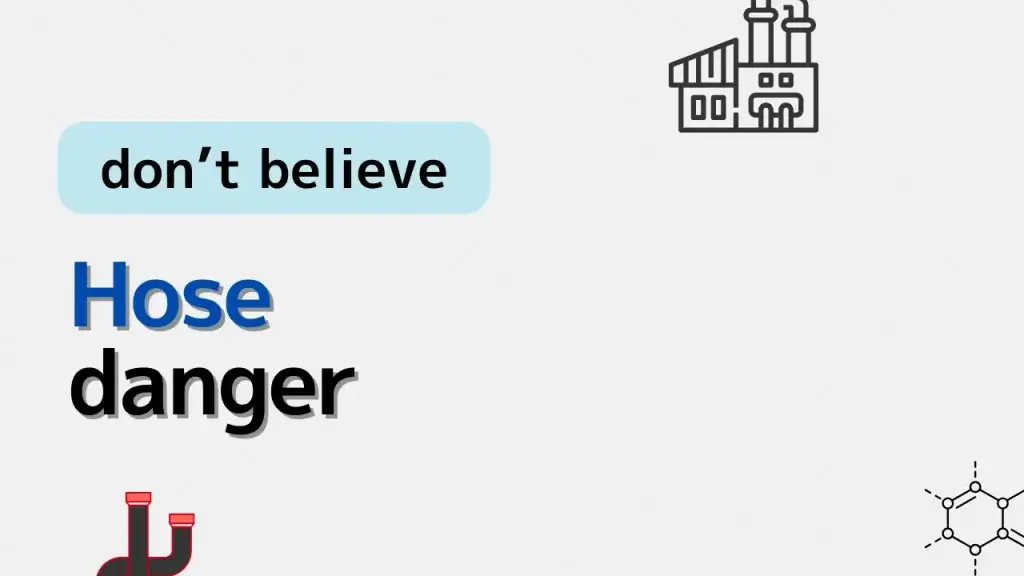Introducing articles from plantengineering.com.
Chemical plants handle many liquids.
It is common to use fixed piping to control the flow of liquid.
However, there may be times when it is necessary to feed the liquid through temporary piping using a hose.
However, hoses have the disadvantage of cracking and leaking.
Let me explain why this problem occurs.
friction
When a liquid or gas flows through a hose, the hose moves.
This movement causes the hose to rub against surrounding equipment and the floor.
Fixed piping can also rub, but fixed piping made of metal and hoses made of resin differ in how easily they wear out.
It’s hard to notice because there is no visible movement in pipes or hoses, but damage does accumulate over time as they are used.
I used the hose for a long time, thinking there would be no problem, but before I knew it, it started leaking. This kind of thing can happen.
This is not a problem if it is a liquid that can leak, such as water.
It is a big problem if it is a liquid that can burn or cause chemical damage if it leaks.
So don’t rely too much on hoses in chemical plants.
Check the health of the device before using it, check it periodically while using it, and finish using it as soon as possible.
Let’s take care of this principle.
bending
You can bend the hose to some extent by yourself.
Hoses are easy and convenient for creating passageways in places like plants where piping runs in a complex manner.
There are limits to the amount of bending that can be done with hoses.
Considering wear as well, it is safer to have as little bending displacement as possible.
corrosive
Hoses generally do not have high corrosion resistance.
Rubber materials are generally less corrosive.
If the hose is made of metal material, its lifespan will be short because the plate thickness is thin.
